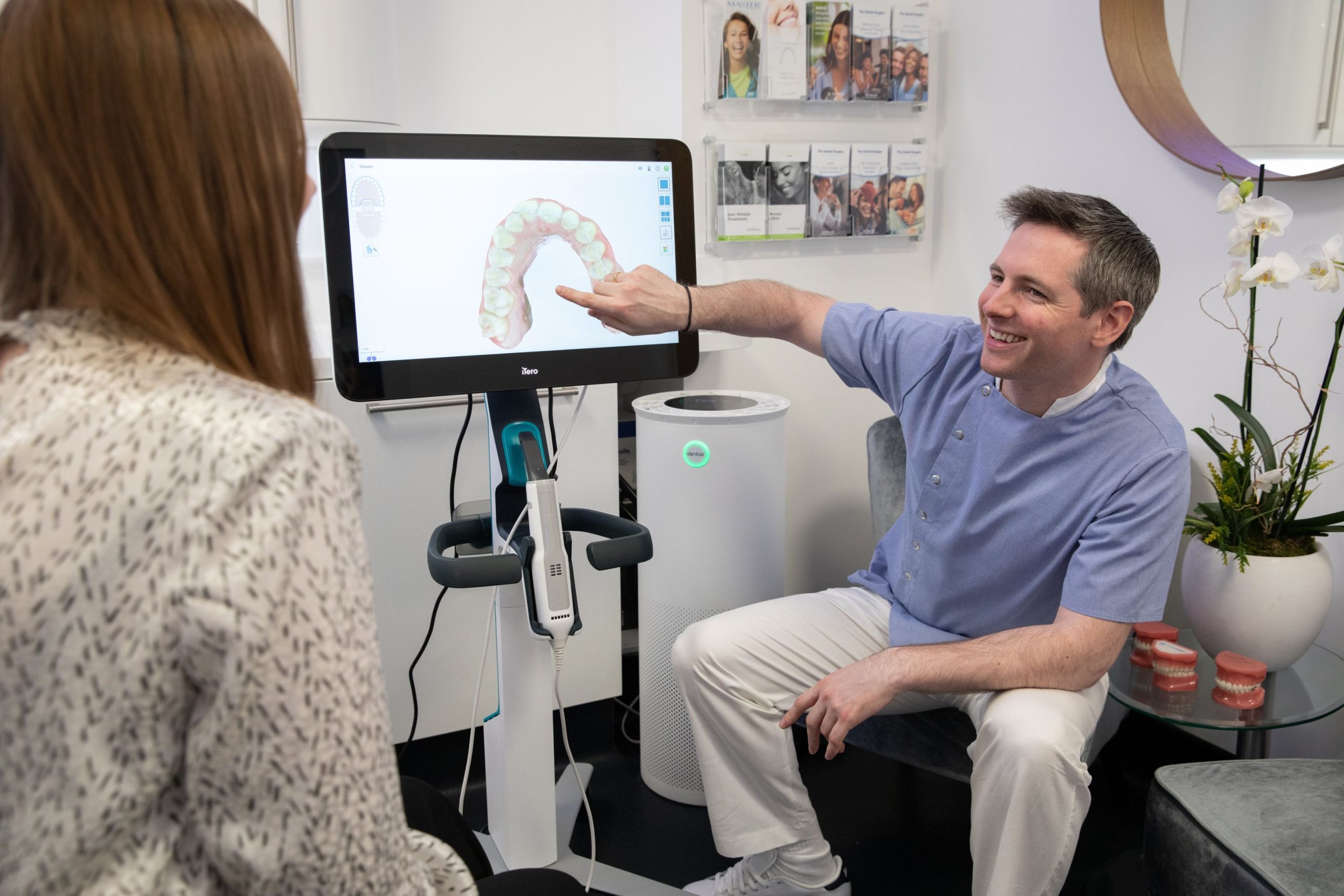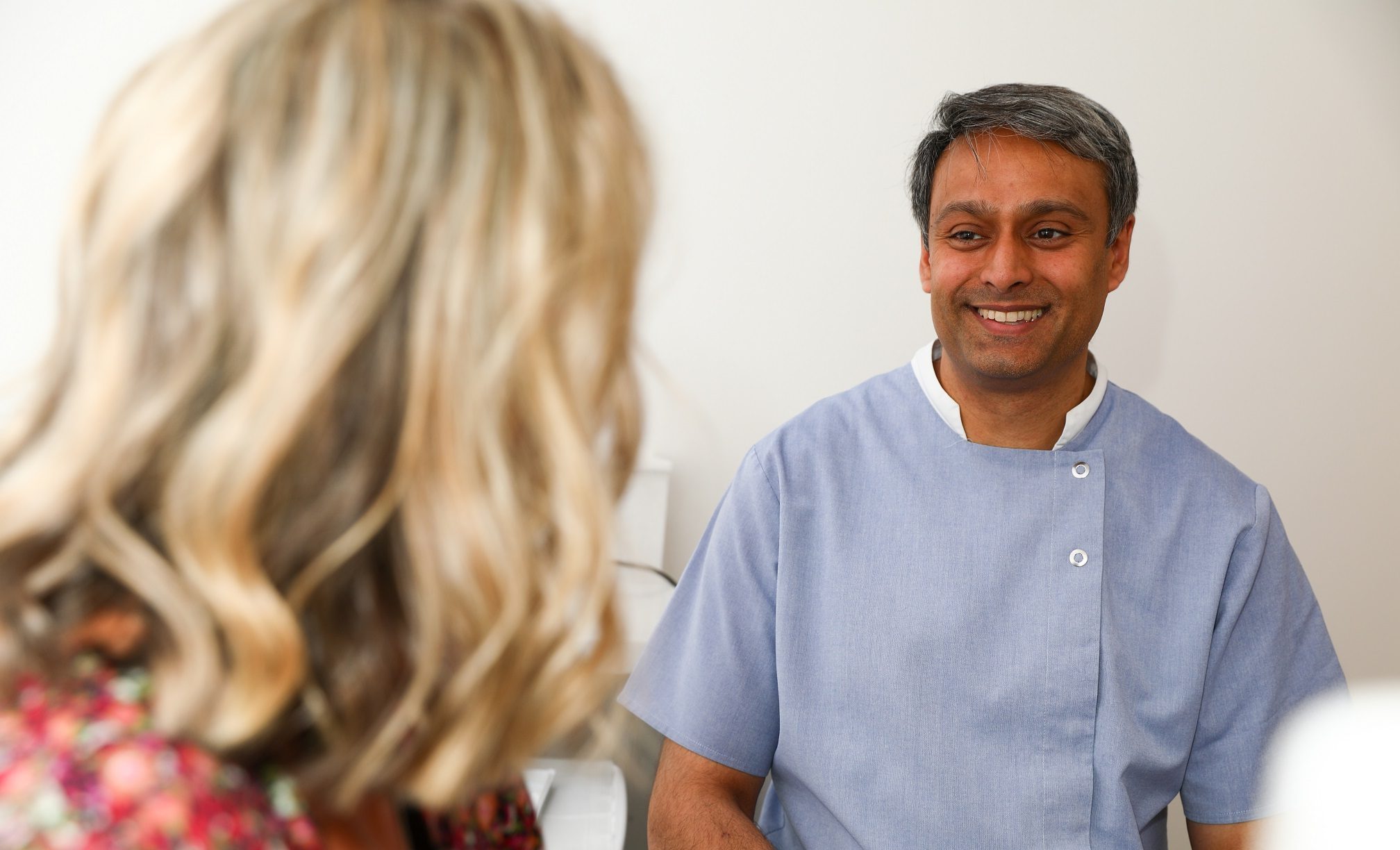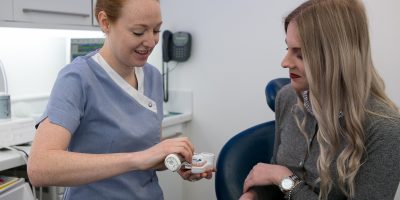Looking after your gum health
How Periodontics can help you
Our Specialist team can help you restore your smile to a healthy condition with a range of Periodontic solutions. Some of the signs that you might need to see our London Periodontist are:
- Bleeding gums
- Bad breath
- Red or swollen gums
- Loose teeth
- Receding gums
If you are concerned about any of the above, feel free to fill in our simple form below and one of our team will be in touch to arrange your Periodontic consultation.
Book an appointment with our Specialist
Meet our Periodontic Specialist – Dr Omar Patel
GDC Nr. 81976
BSc (Hons), BDS, MFGDP, MFDS, MClinDent, MPerio RCSEd
As a Specialist Periodontist, Omar qualified in 2003 from the University of Glasgow, winning the prize for conservative dentistry as an undergraduate. In 2005, he became a practice principal and subsequently a vocational trainer with the responsibility of training newly qualified dentists.
Omar was awarded the Diploma of Membership of the Faculty of General Dental Practitioners, Royal College of Surgeons of England in 2007. He was also awarded the Diploma of Membership of the Faculty of Dental Surgery, Royal College of Physicians and Surgeons of Glasgow in 2008.
As well as providing periodontal care at The Dental Surgery, Omar’s special interest is in the association between periodontal disease and diabetes. In 2015, he received the Ron F. Wilson award from King’s College London for clinical research and has presented his research internationally.
Omar is a keen golfer and tennis player and enjoys hill walking and long distance running at the weekends. He also has a degree in computing and a passion for all things technological.
Periodontics services London – what to expect
Our Specialist Periodontist team in London are dental practitioners dedicated to the prevention and treatment of gum disease and treatment tooth-supporting tissues, the periodontium. You don’t need a referral to see our specialist or team of hygienists, if you have a history of gum disease in your family you can see them directly for a consultation.
Depending on the severity of your condition, certain treatment plans may be presented for your consideration, though they all follow an initial consultation with our specialist. Each consultation includes: Scans, X-rays and other examinations to determine the stage of your condition. Once determined you can expect your treatment options to include (but not limited to) the following:
Hygiene and deep clean
Early stages of gum disease can easily be managed through visiting our Dental Hygienists and getting a deep clean (prophylaxis) to remove plaque build up.
Root Plaining
Sometimes plaque deposits are so advanced that a technique called ‘Root Plaining’ can be used to treat the symptoms.
Only performed by Specialists Periodontists, this deep scaling occurs under the gum line and is a non-invasive periodontal treatment option.
Periodontic Surgery
Treatment for the most severe periodontitis conditions. Invasive procedures, which can include medical interventions, to help with tissue management and also bone growth.
What is gum disease?
Gum disease (periodontitis) is an inflammatory disease. Inflammation is part of the body’s natural defence mechanism and occurs in your gums in response to a build-up of plaque (bacteria) on the teeth. In some people, this natural inflammatory process is too severe or poorly controlled and the inflammation actually damages the supporting structures of the teeth, namely the gums and supporting bone.
How can our Specialists Periodontist help?
Depending on the severity of the condition, this disease can be treated successfully by removing all plaque and calculus deposits. Similar to diabetes, there is no cure, but by stabilising the disease, we can prevent further damage and help you to maintain the health of your teeth and gums.
Do I have gum disease?
Approximately 10% of the population are severely affected by periodontal disease and by the age of 60 years old around 80% of people will display some bone loss, albeit mild. The disease is slow progressing and most people are not aware that they have it until diagnosed by a dental professional.
There appears to be some genetic link with periodontal disease. If you have been diagnosed,, then potentially your siblings and children may be at an increased risk of having the same problem. Ideally they should all be screened and monitored for potential problems by their general dentist. That is where our team can help, we provide essential care and a number of gum disease treatments.
Frequently asked questions
-
Can you just give me antibiotics?

This is not an infection; it is the body’s reaction to removable plaque. When the plaque is physically removed by you and by us, the inflammation will resolve, and the disease will stabilise without the need for antibiotics. Gum disease is never treated with antibiotics.
-
What if I don't have treatment?

If the bone loss around the teeth is not controlled then teeth may become loose, gums shrink and in some cases teeth may become infected and may need to be extracted.





